Home > Dom Manuel I
Dom Manuel I
May, 1469 (Alcochete, Portugal) – December, 1521 (Lisbon, Portugal)
Be dazzled by the light and the view in this room. Inspired by King Manuel I, it combines classic decor with a modern style in grey tones. In addition to its spacious area and its comfortable double bed, you will also find a balcony from where you will have a privileged view of the city.
One of the most romantic rooms in the hotel.
The Suite Royal With View – D. Manuel I combines timeless elegance with modern comfort, accommodating up to two guests. Decorated in harmonious blue and grey tones, this spacious suite features a comfortable double bed, a bright living area, and a marble-accented bathroom.
A private balcony invites you to enjoy stunning views over the city, while the tasteful décor creates a serene and classic atmosphere. The suite is equipped with a Delta coffee machine, minibar, TV, free Wi-Fi, air conditioning, hairdryer, and safe. Complimentary coffee and water are available throughout your stay, ensuring both comfort and convenience.
See our other rooms in the Royal Suite with a View category
- Up to 2 People
- Double Bed
- Balcony
- City View
- Coffee Machine
- Mini Bar
- Television
- Free WiFi
- Air Conditioning
- Hairdryer
- Safe
- Offer of Delta Coffee and Water throughout your Stay
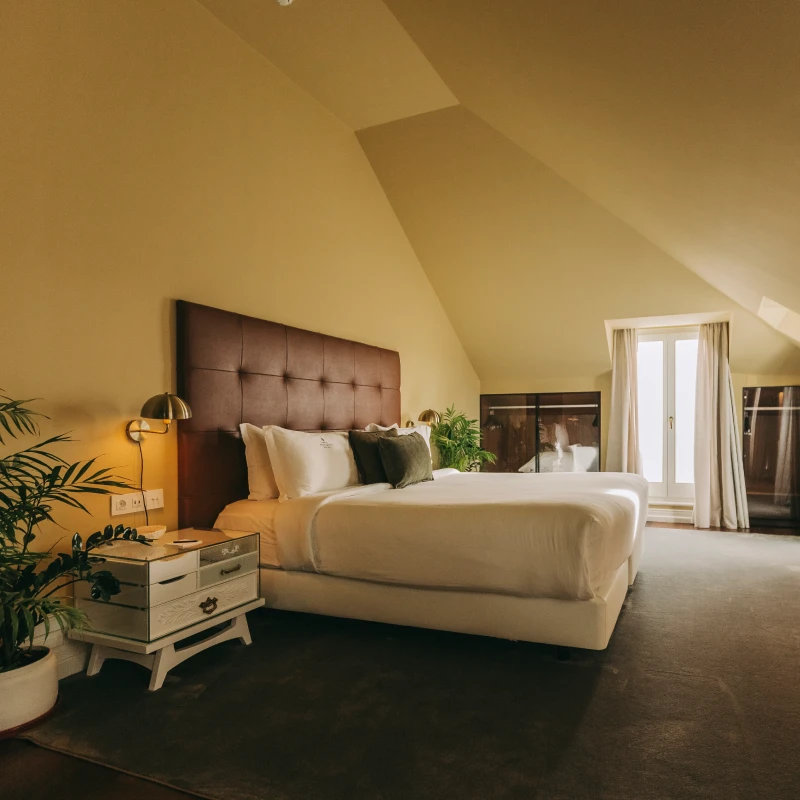
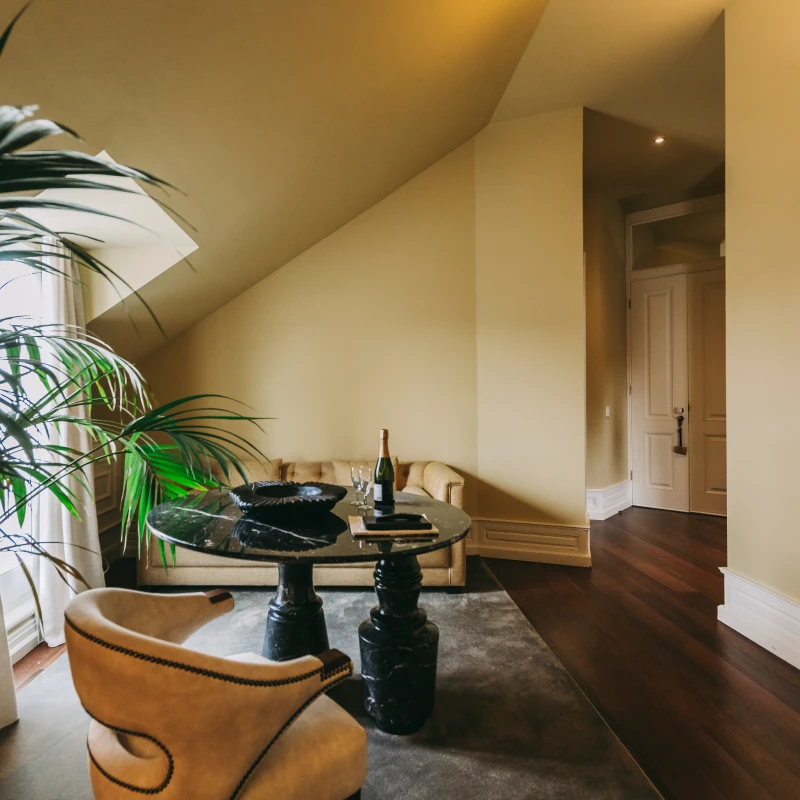
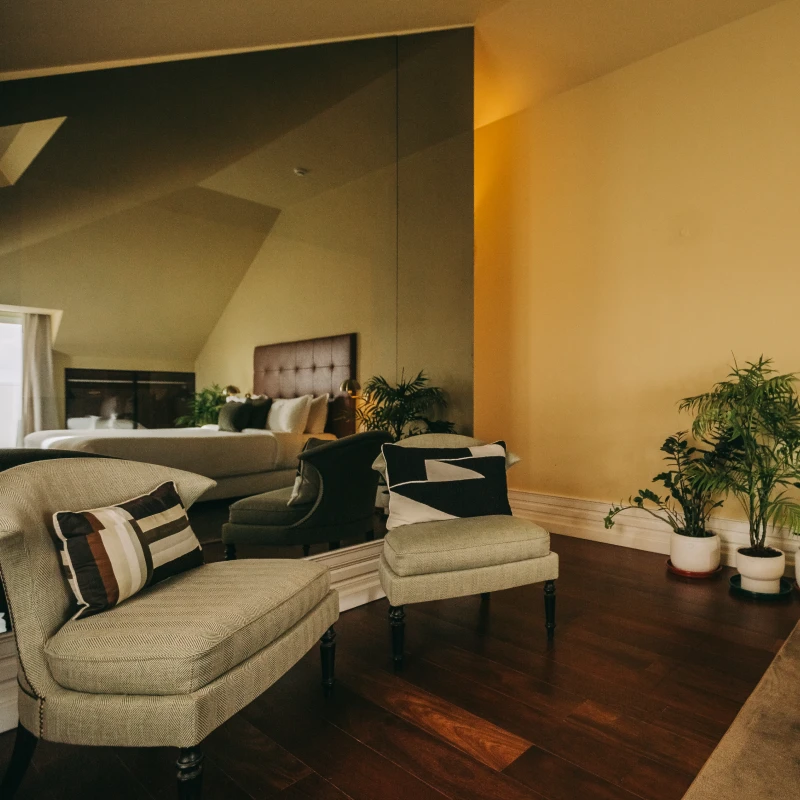
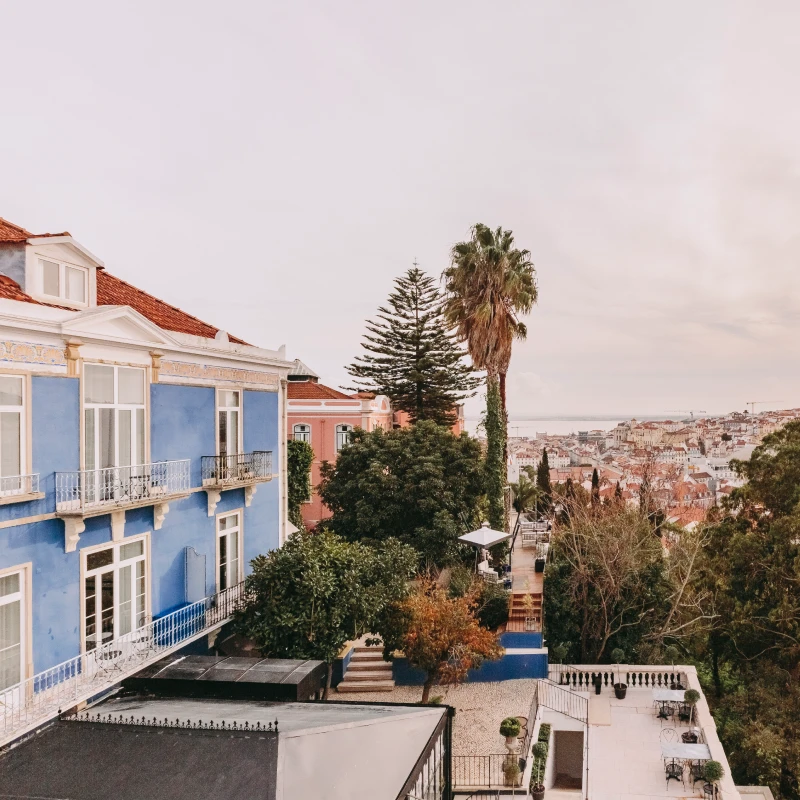
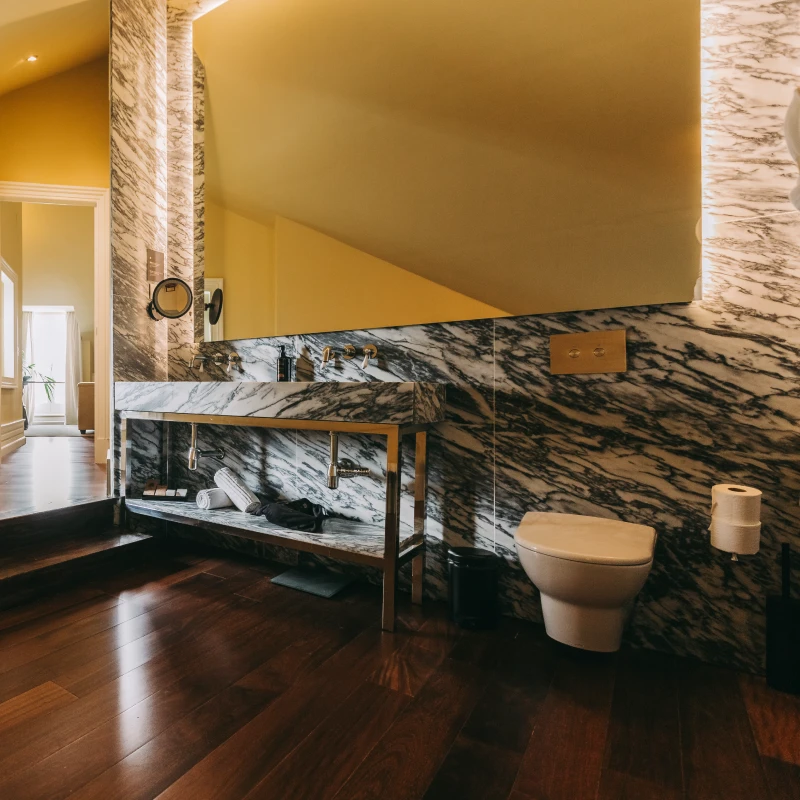
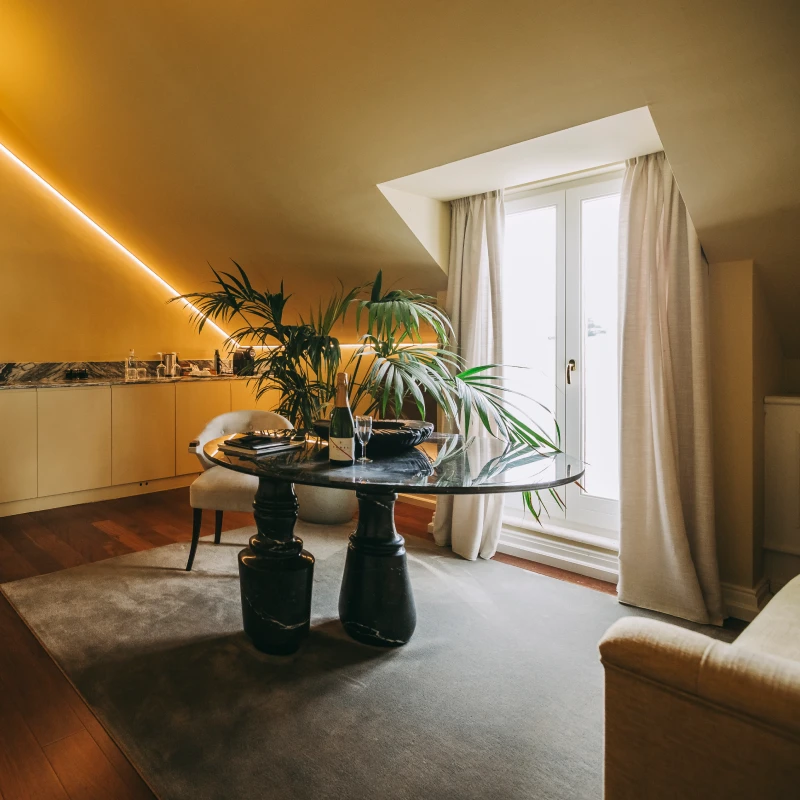




In Honor of...
Dom Manuel I

Dom Manuel I, known as the Fortunate, reigned as King of Portugal from 1495 to 1521. A nephew of King João II, he ascended the throne unexpectedly after the death of Prince Afonso and was seen by many as a providential choice — hence his famous epithet.
His reign marked the golden age of Portuguese exploration and expansion. Under his rule, Vasco da Gama discovered the sea route to India, Pedro Álvares Cabral reached Brazil, and Afonso de Albuquerque secured key trading posts across the Indian Ocean. The wealth brought from these ventures turned Portugal into a global maritime empire.
A devout Catholic, Dom Manuel ordered the construction of several magnificent religious monuments, including the iconic Jerónimos Monastery and Belém Tower, symbols of Portugal’s grandeur and maritime glory. His court was known for its refinement, attracting artists, scholars, and navigators from across Europe.
However, his reign also saw the forced conversion and expulsion of Jews and Muslims, a decision influenced by his marriage alliance with the Catholic Monarchs of Spain.
Dom Manuel I died in 1521 and was buried in Jerónimos Monastery. His legacy is one of splendour, ambition, and the shaping of Portugal as a dominant force in the early modern world.









